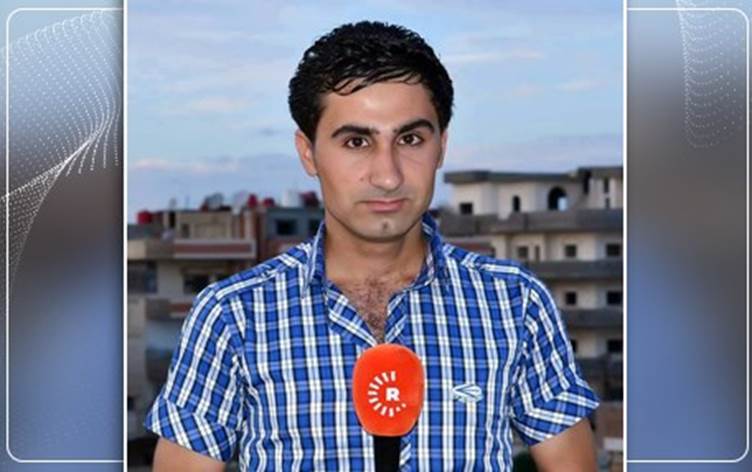ERBIL, Kurdistan Region — Rudaw reporter Farhad Hamo and cameraman Massoud Aqeel were abducted four years ago while covering the war on ISIS in Syria. Aqeel was later freed, but Hamo remains missing.
Despite multiple calls for his release by Rudaw Media Network and other outlets, his fate remains unknown. Neither his family nor colleagues have new information on his whereabouts.
They were kidnapped at the Heso-Ratla junction on the main road between Qamishlo and the town of Til Kochar in northern Syria, or Rojava.
After being kidnapped for nearly 10 months, ISIS and the self-governing body in Rojava negotiated for Aqeel to be freed on September 21, 2015, in the town of Holi, south of Hasaka.
Hamo, 29, was born in Hasaka governorate.
Rudaw Media Network continues to call for the release of journalist Farhad Hamo.
Syria is one of the most dangerous countries for journalists in the world. Since 1992, the Committee to Protect Journalists (CPJ) has documented the killings of 128 journalists and media workers.
Hamo and Aqeel were both kidnapped by ISIS in the Jazira region in northeast Syria on December 15, 2014, at 11 a.m.
Despite multiple calls for his release by Rudaw Media Network and other outlets, his fate remains unknown. Neither his family nor colleagues have new information on his whereabouts.
They were kidnapped at the Heso-Ratla junction on the main road between Qamishlo and the town of Til Kochar in northern Syria, or Rojava.
After being kidnapped for nearly 10 months, ISIS and the self-governing body in Rojava negotiated for Aqeel to be freed on September 21, 2015, in the town of Holi, south of Hasaka.
Hamo, 29, was born in Hasaka governorate.
Rudaw Media Network continues to call for the release of journalist Farhad Hamo.
Syria is one of the most dangerous countries for journalists in the world. Since 1992, the Committee to Protect Journalists (CPJ) has documented the killings of 128 journalists and media workers.




Comments
Rudaw moderates all comments submitted on our website. We welcome comments which are relevant to the article and encourage further discussion about the issues that matter to you. We also welcome constructive criticism about Rudaw.
To be approved for publication, however, your comments must meet our community guidelines.
We will not tolerate the following: profanity, threats, personal attacks, vulgarity, abuse (such as sexism, racism, homophobia or xenophobia), or commercial or personal promotion.
Comments that do not meet our guidelines will be rejected. Comments are not edited – they are either approved or rejected.
Post a comment